|
Today, August 8th, is the feast day of St. Dominic de Guzman, founder of the Order of Preachers—the Dominicans.
St. Dominic was born around the year 1170, and he came from a noble and devout family. After studying at the University of Palencia for ten years and becoming a priest, Dominic eventually went to southern France to fight the Albigensian heresy. While there, he determined that a return to the preaching style of the Apostles in the time of Christ—to engage with individuals, to go where the Spirit led them, and to live simply—would most effectively preach the Gospel message and bring heretics and converts back to the faith. After spending several years evangelizing and preaching, Dominic had acquired a small band of followers. With them, he founded a religious order, basing it on the Rule of St. Augustine and giving it the mission of “preaching and the salvation of souls,” with an emphasis on the importance of spiritual and intellectual formation. The Order of Preachers was officially recognized by Pope Honorius III in late 1216. In a time when opposing sides often resorted to violence, St. Dominic chose to combat the Albigensian heresy through open dialogue rather than bloodshed. By having a deep understanding of Scripture, tradition, and philosophy, and by engaging with individuals on an intellectual and moral level, he was able to bring back into the faith many of those who had fallen into error. The Order of Preachers that he founded continues to embrace these principles by preparing preachers who are “intellectually informed and pastorally competent.” St. Dominic chose to settle the first members of his order in university cities so that they could gain the intellectual training they would need to become engaging and morally compelling preachers of God’s word. The Order of Preachers, to this day, still heavily emphasizes the importance of spiritual and intellectual formation in preparation for their pastoral work. The Dominican House of Studies in Washington, D.C. continues in the Dominican tradition of establishing communities of Dominicans near universities. Dominicans residing at the House of Studies teach at nearby at The Catholic University of America, assist with Masses at parishes in the Archdiocese of Washington, and produce a journal. Reading about the origins of the Dominicans and their continued success reminds me of the important place that religious study ought to hold in even the layman’s spiritual life. While we cannot all get degrees in theology, feeding the intellectual curiosity about our faith can lead us deeper into our relationship with God and to a better understanding of his truth. Reading more about our faith, or about the lives of the saints we wish to emulate, can also better equip us to evangelize when the opportunity arises. While we may not be reading the Summa Theologica or the Catechism cover to cover, there is a plethora of material—from papal encyclicals and the core documents of Vatican II, to letters and diaries of the saints—available for us to deepen our own understanding of the faith and to be able to share it with others. I myself have been inspired by reading about the life of St. Dominic de Guzman and the work of the Order of Preachers. As a result, I have decided to further engage my faith through more rigorous spiritual reading. I think a good place to start is with a course of study on one’s vocation—for me, that means marriage and parenthood, and thus my “to read” list includes Three to Get Married by Fulton Sheen and the papal encyclicals Castii Conubii and Humanae Vitae. What will you read to engage more deeply with your faith? Question for Reflection: How can the life of St. Dominic and his emphasis on intellectual formation help you deepen your spiritual life?
0 Comments
I remember the first time I experienced Eucharistic Adoration. During my first week of college, I was walking back to my residence hall after grabbing dinner with some friends of mine. As we walked back into our dorm, one smiling upperclassmen was talking to some other freshman in the lobby. He saw us and made a beeline. I was only five steps away from the elevator, maybe he wouldn’t catch me. Alas, the elevator did not come in time and we ended up chatting with this friendly upperclassman. As he introduced himself, he also invited us to praise and worship Adoration that night. He promised us there would be a ton of good food afterwards. Though there were posters about this event throughout the dorm and we knew about it, we did not previously plan on attending. However, after being personally invited, being called by our names, we decided to give it a try. It was one friendly person’s invitation (and yes, the promise of food) which forever changed my faith-life. After going to Adoration and the fellowship held immediately afterwards with friends, I was hooked. College students and young adults are in a unique place in their faith journey. Many are seeking answers to some pretty big life questions. As the Church, we have the joy of being called to reach out to these sometimes marginalized members of our community and invite them to experience the love of Christ. Yet, how do we do that? As a college student myself and someone who ministers to undergraduate students, I have found that there is one way in which your parish can successfully engage Catholic young adults and college students. All college students and young adults seek a place to belong. And what better place is there than the Church of Jesus Christ? The parish community can seek to provide different opportunities for college students and young adults attending the parish to get together for fellowship. Having faithful Catholic friends your age who provide you with support on your spiritual journey is indispensable. The Christian life is not individualistic in nature, but one marked by interdependence. Being a parish which hosts events that foster communion between young adults is a key way to keep young adults engaged in parish life. Some parishes successfully do this by hosting mini-Theology on Tap series at a local restaurant, or something as simple as hosting praise and worship Adoration followed by a meal. These are just two examples of how you can help young adults feel like they belong in your parish community and experience Christian fellowship with their peers. One principle tip is to host events which have a liturgical aspect (pray compline together or have a holy hour) and a fellowship aspect (do not underestimate the power of food!). Yet, you might be thinking, there are no college students or young adults currently active in my parish! Pope Francis might have some wisdom to share with us. During Pope Francis’ journey to Brazil for World Youth Day in 2013, he told an assembly of bishops that "we cannot keep ourselves shut up in parishes, in our communities, when so many people are waiting for the Gospel.” Each baptized member of the parish community has a responsibility to be hospitable and welcoming. Each member of the parish community must be marked by their missionary zeal. Evangelization is not simply the job of the parish staff, but the calling and the joy of each Christian. Hence, it is your calling, not somebody else’s, to reach out to inactive college students or young adults and invite them back to the parish so that they can experience the love of Jesus Christ. This involves each person in the parish calling students by name. It was that simple invitation which brought me into regularly participating in the life of the Church. This responsibility, this call of each Christian to invite students and young adults by name, also becomes one of the greatest joys. *This post was originally published on our blog on April 14, 2016. Although I recently graduated from The Catholic University of America, I frequently find myself back at my alma mater for various events and activities. Even more frequently, as I look around, I am reminded that the usually vibrant and bustling campus is now much more subdued and calm: it is summer in Washington, D.C. and the university seems to be an empty nest. As a former student, I’m free of the academic schedules and obligations that have dominated my life until now. I sometimes feel as if I’ve taken on a new identity. I am more conscious that the direction of my life rests squarely in my hands.
This is especially true as I begin to look for a new parish community and cultivate my faith as an adult. In order to benefit from all the Church offers spiritually, personally, and materially, I need to actively seek out and choose opportunities to continue to grow in my faith each and every day. While my time as a student was blessed with high exposure and easy access to the various ministries of the Church around campus, now that I have graduated I must seek new sources of spiritual nourishment closer to home or work. As disciples, this is something we are all called to do. Ministries and resources for adult faith formation, such as those found at the Catholic Apostolate Center or in our local parishes, ensure that we continue to grow in our faith. The places where I grew up remain open for me to return to, but now I look to places that are more cohesive with my current location and daily schedule. It might be unsettling having to look for and choose a new spiritual home. As is the case for starting at a new school or moving to a new neighborhood, the process of making friends, learning the culture, or finding support systems begins anew. While potentially uncomfortable, doing these things is a necessary step to adapt and thrive while laying down new roots. The same goes for the spiritual life. Finding ministries to join in a new parish will be necessary in order to make the most of a new spiritual home. As stated in Christefideles Laici, “the parish is called to instruct its members in hearing God's Word, in liturgical and personal dialogue with God, in the life of fraternal charity, and in allowing a more direct and concrete perception of the sense of ecclesial communion and responsibility in the Church's mission.” It is within the context of the parish that we are able to continue to grow in our faith. There is much diversity in the Catholic church resulting in differences in the parishes and ministries around you. Perhaps the atmosphere in one parish is more subdued or the community in another is less tightly-knit that what you’re used to. That’s okay! The life of the parish depends on the contribution of its spiritual family. We are all called to participate in the life of our parish. As we read in Apostolicam Actuositatem, the Decree on the Apostolate of the Laity, “As far as possible the laity ought to provide helpful collaboration for every apostolic and missionary undertaking sponsored by their local parish.” Do not be shy to attend a new Mass time with a different liturgical or musical character. Parishes offer many resources to the best of their ability, not just to the local church, but the greater community; the Christian life is not one of isolation! By taking advantage of the spiritual treasures of a parish, you not only learn more about yourself and your spiritual needs, but you’ll inevitably meet others seeking to do the same. Introducing yourself and taking the time to share ministerial or social experiences (and contact information) will help you to be a more fulfilled and involved member of the parish. These are just a few of the many ways to plant new spiritual roots after a transition. A good place to start a more detailed search can also be done on a diocesan website. The bishop and his staff, as well as the parish offices, do not need to be distant or removed from your daily life, but can help you become comfortable and connected in the local church. In my own search, I began by looking for parishes near my apartment and work before reviewing their websites for a snapshot of the life there. I would venture out for a Mass I could attend and get a feel for how vibrant the congregation worshiped with, served alongside, and supported each other. Above all, I needed to feel welcome! My search eventually ended, but my life as a member of my new parish is just beginning. Now it falls to me to make others feel welcome and engaged in this spiritual family of ours. Just as the Christian life is not lived for the self, so too must we always strive to serve wherever there is a need and encounter others wherever they are in life. By remaining involved in the life of the parish, may each of us continue to grow in faith and so better respond to the dismissal at the end of Mass to “go and announce the Gospel of the Lord.” Question for Reflection: How can you use your gifts and talents to participate in or start a ministry in your parish? What can you do to make others feel welcome? Click here to read more from Thomas about making others feel welcome in the Church. My sacrifice, O God, is a contrite spirit; a contrite, humbled heart, O God, you will not scorn.” – Psalm 51: 19 During my graduate program at The Catholic University of America, I had a chance to take a class on the Psalms. Not only did I learn a lot of information about the psalms, but also my perspective on prayer changed. The professor taught us about the humanity of the psalms: each one is riddled with human emotion and experience. The psalms show us that our prayers to God do not have to be perfect. Rather, our prayers should be honest because we are placing our trust in Him. This Lent, I decided to pray more with the psalms. Over the past few weeks, I’ve done this by praying the Liturgy of the Hours and doing Lectio Divina. Praying with and contemplating the psalms this Lent has really helped deepen my relationship with God. It has also helped me in my role as a Youth Minister. So far, God has reminded me of two principles that we should remember while reading the psalms: 1) the psalms are a mirror to your soul and 2) You should allow the psalms to be a guide to your life. One psalm that the Church uses throughout the season of Lent is Psalm 51. Psalm 51 is titled “The Miserere: Prayer of Repentance” and the first two verses tell us that this prayer is the prayer David prayed after the prophet Nathan had told him he had sinned (cf 2 Kings 11-12). By praying this psalm throughout the season of Lent, we are reminded how much we are in need of God’s mercy. No matter what we’ve done or what we will do, God always calls us back to himself. He constantly invites us to repent for our sins and be reconciled with him. God’s mercy awaits us in the Sacrament of Reconciliation. We are all sinners. By using Psalm 51 as a mirror to our own souls, we know that we are in need of repentance. Through the Sacrament of Reconciliation, the Lord can wash us so that we can become “whiter than snow” (Psalm 51:9) Psalm 51 is also a great prayer to guide a Christian’s life. We are imperfect beings living in a broken world, and we encounter sin every day. It is only through God’s abundant compassion that he blots out our sins. Verse 12 says: “A clean heart create for me, God; renew within me a steadfast spirit.” As Christians, we are called to repentance and conversion. God always calls us to allow him to change our hearts to bring us closer to his own heart. By continually offering our own hearts to him, God will do great things throughout our lives. Lent is a time of repentance and turning our hearts back to God to prepare for Easter. Through praying with Psalm 51, we can be reminded of our own brokenness. We can also be reminded to offer our heart to God in every prayer and action that we do in order to allow him to create in us a clean heart. Question for Reflection: How can you pray with the psalms this Lent? Choose one psalm this week to reflect on. You may have heard this phrase or a deviation of it before: while St. Ignatius referred to, “Seeking God in all things,” St. Vincent Pallotti taught, “Seek God in all things, and you will find God in all things.” Both convey the same message. While this message can be an easy one to remember, putting it into practice is a different story—even Jesus’ disciples had trouble with this! If we look at the story of the disciples on the road to Emmaus, it was only after Jesus had traveled along the road with them, sat down, and broke the bread that they recognized Him (cf Luke 24:13-32). If the disciples could struggle to recognize Christ, how many times in our lives have we also failed to recognize Him in a person, place, or event?
This past summer, I undertook the great challenge of attempting to recognize Christ in my everyday life. Having been blessed with the opportunity to attend World Youth Day in Poland, I, for the first time, felt like I was truly experiencing a culture that was authentically Catholic. Everywhere I went, I found myself able to identify Christ present in my surroundings. Throughout the trip, I worried that the enthusiasm with which I found it easy, even second nature, to exhibit my faith would go out like a lamp when I landed and departed from my group in the US. I knew it did not have to, nor should be that way, but in the back of my mind this was how I felt. I was compelled to not make this happen. I knew I needed a community in which I could sustain and share the joy of seeking Christ in all things. Enter the Knights of Columbus Council of Catholic University. Having been recently elected Grand Knight of the Council, I knew I had many decisions to make, one of which included coming up with a theme for the upcoming fraternal year. While flying home from Poland, it dawned on me: what better theme than what I had just experienced? After making my suggestion to the chaplain and a few others, the theme of “Seeking Christ in All Things” was announced to the Council during our first business meeting in the fall semester. Following this announcement, the Council sought to incorporate the new theme into its fraternal programs, beginning with the reflection shared by the Council’s Lecturer and continuing with our Chaplain’s reflections. There was much discussion about our theme, “Seeking Christ in All Things.” Discussion is important, but as Knights, we must also give witness to our faith. The Knights at The Catholic University of America have sought Christ in our lives and invited others into this encounter with Him in various ways. Some examples that come to mind center around our weekly “Knights Mass” where, together with our campus community, we attend daily Mass once a week together. Afterwards, we pray the rosary together and invite others to join us. Knights from our Council also lead and are involved in numerous activities through our university’s campus ministry. These programs include a weekly homeless food run, tutoring at a local after-school program, and countless liturgies on campus and in our neighborhood in Washington, D.C. In addition, several members of our Council will be doing international and domestic mission trips during our spring break. You do not need to be a Knight of Columbus to encounter Christ or bring people closer to Him. As we begin Lent, I invite you to take the time to look for Christ in your life. Strive to pray wherever you are, not just in church on Sundays. Go volunteer and recognize Christ in those whom you serve. Look for the unconventional places that Christ may in your life. Find the beauty that is there and never let it leave your sight. Daniel Hackenjos serves as Grand Knight of the Knights of Columbus Council of Catholic University where he studies elementary education as an undergraduate. Some of the extensive spiritual formation programming of the CUA Knights is in the March 2017 edition of Columbia, the official magazine of the Knights of Columbus. As I wrote this post, the Catholic University of America was preparing to celebrate Homecoming, when over 1,500 alumni and their guests returned to their alma mater. The weekend itself is a joyful occasion, a chance for classmates to catch up with one another and see what has occurred in the time since graduation. While life often takes alumni down different paths, Homecoming offers everyone the opportunity to reconnect with the place that, and the people who, helped launch the next chapter, whether it was one of service, religious vocation, family life, and/or employment. Homecoming itself reflects the willingness of the University to throw open its doors to welcome back all, no matter how long they’ve been gone or why they stayed away. It’s a tried-and-true model and it’s along these lines that the Church opens her doors to those who might have fallen away, whether because of a poor experience or because of a lack of interest or engagement. Initiatives such as “Catholics Come Home,” or the Archdiocese of Washington’s “The Light is On For You,” and similar diocesan programs nationwide, seek to welcome back Catholics who have been absent from the life of the Church. The projected tone and nature of these programs is of authentic openness and welcome — free of any judgement or bitterness. The goal is to encourage those who have been away to re-encounter the perfect love and understanding of our Lord as manifested and offered by His Church. The doors of the Catholic Church are open year-round for those seeking something better than what the world offers but there are moments in the liturgical calendar which emphasize and focus on refreshing one’s spiritual life such as Advent and Lent. Similarly, the invitation to participate in or observe the sacraments being celebrated can be an emotional catalyst for one to come back or renew his or her baptismal promise. Emotions, such as the awe of witnessing a reverent First Communion or religious profession, the joy of a marriage, or the hopeful rawness of a funeral, can move one to respond to a previously suppressed or unrecognized call to reconciliation with the Church. These “moments of return” can awaken a longing for an interior peace that only the Lord can provide. As Pope Francis encourages: Maybe someone … is thinking: my sin is so great, I am as far from God as the younger son in the parable [of the Prodigal Son], my unbelief is like that of Thomas; I don’t have the courage to go back, to believe that God can welcome me and that he is waiting for me, of all people. But God is indeed waiting for you; he asks of you only the courage to go to him… I have always pleaded, “Don’t be afraid; go to him; he is waiting for you; he will take care of everything.” We hear many offers from the world around us, but let us take up God’s offer instead: his is a caress of love. Archbishop Sheen, the great evangelizer who brought millions around the world into an encounter with the Lord via his weekly TV program, Life is Worth Living, encourages us to seek out those who have everything to gain by entering into Christ’s body on earth but are currently missing out: What was the first word of our Lord’s public life? That’s the key to preaching. It was ‘come.’ Come. Come to Me. Be enflamed with my Truth. Be on fire with my Love. And what was the last word of our Lord’s public life? It was ‘Go!’ First we come, then we go! (Sheen, “The Art of Preaching,” 1972) Just as the gift of faith was freely shared with each of us, how enthusiastically, then, we must go and share the Good News with everyone on the highways and byways — we cannot keep it to ourselves! As we begin to prepare for the celebration of our Lord’s birth during the Advent season in a few weeks, why not invite someone to join you for the beginning of a new liturgical year — and the beginning (or rediscovery) of something deep within that person that can only be the desire to know our Savior. By doing so, by planting the seed of the Word in people’s minds and hearts, by boldly meeting people where they are in life rather than waiting for them to come to us, each of us who are sharers in the Church’s ministry can cause much rejoicing in heaven (Luke 15:1-7). Let us embrace those who have been away for a long time, crying out, “Welcome home!” “Are you junior Knights of Columbus?” This was the question posed to me by an elderly woman during my freshman year of college as I joined my brother knights for 8am Mass at the Basilica of the National Shrine of the Immaculate Conception adjacent to The Catholic University of America’s (CUA) campus. It was a Friday morning, and of course I loathed getting out of bed. However, I had made a commitment and I wanted to follow through as best I could.
Some of the upperclassmen knights that were with me answered politely back, “No, ma’am, we’re just regular knights.” She smiled and wished us well, clearly happy to see young men going to Church. Back then, our council membership was small, but we had big aspirations. All of the guys that I joined the Knights with had the same idea in mind. Here we were, embarking on a new chapter of our life. We wanted our faith to be enriched and strengthened. We wanted to serve the community and neediest among us. We wanted to find friends who would support us in our endeavors. The Knights of Columbus are a 1.9 million member Catholic fraternal organization. Founded in 1882 by the Venerable Servant of God Fr. Michael J. McGivney, the order is founded on the principles of charity, unity, fraternity, and patriotism. Originally formed to provide financial assistance to members and their families, the order today continues to do so through its insurance program, which funds its charitable works. The Knights of Columbus are organized into local councils, often housed within parishes, and are governed internationally by a supreme council headquartered in New Haven, Connecticut – where the order was founded. As the Knights of Columbus meet this week in Toronto, Canada for their Supreme Convention – their international convention during which they elect officers, pass resolutions, and report on membership, etc.—I wanted to share my story of the impact this organization has had on my life. Growing up, I always wanted to get involved in extracurricular activities at school and within my community. I joined the student council, led clubs, and served as a counselor to other students. When I arrived at college, things were no different. The CUA council of the Knights of Columbus was the first group I joined. It soon became apparent to me that I had found just what I needed – what I had been looking for as a new college student. This group would help me realize that my faith should not just be important - but it should be the cornerstone of my being. As a knight, I have grown in fraternity with my brothers. I have been able to serve my community through charitable fundraisers and service opportunities. I have supported veterans and active-duty military – something that the order encourages no matter which country a council is in. I have been able to instill in others the characteristics of true chivalry. Because of the Knights of Columbus, I have become a better Catholic and a better man. I would encourage any Catholic male to think about joining this organization. A similar organization for women is the The Catholic Daughters of the Americas. If you are already a knight, I would encourage you to stay involved and help to recruit others. As our chaplain is fond of saying, “What you give to the council, you will get back one hundredfold.” I cannot endorse this statement enough. Let me leave you with a few lines from a song that we sing at the end of our council meetings: We have a mission great True to our Church and State Onward we move We dry the mourner's tear The tired heart we cheer Faith in our works appear, Upheld by Love. These few lines, I think, embody just what it means to be a Knight of Columbus. “Let us remember that we are in the holy presence of God.” With these words, I and students of Lasallian schools around the world would pause before class to contemplate and center ourselves on this truth. This call to prayer tended to have the effect of stilling the room, if only for a few moments of silence, but I especially appreciated turning my focus to God before carrying on with my day. Even after I graduated from high school, I was able to cherish this simple ritual even more as I would go through my busy routine at The Catholic University of America. I found that even the simplest acknowledgement of God— this small act of love— would help me endure the challenges of the day. The Church celebrates the feast day of St. John Baptist de La Salle on April 7, though his institutions continue to celebrate on May 15, the date of his original feast day until 1969. Students of De La Salle’s schools may be very familiar with his biography, whose life’s works are the very foundation of their education. De La Salle was born to a wealthy family in Reims, France in 1651. At that time, most children had little hope for social or economic advancement. Seeing how the educators in his hometown were struggling, lacking leadership, purpose, and training, De La Salle determined to put his own talents and education at the service of the children “often left to themselves and badly brought up.” Having donated his inheritance to the poor of the famine-afflicted province of Champagne, De La Salle began a new religious institute, a community of consecrated laymen to run free schools “together and by association,” the first with no priests among its members: the Institute of the Brothers of the Christian Schools, known in the United States as the Christian Brothers. His community would grow to succeed in creating a network of quality schools throughout France that boasted revolutionary educational practices such as instructing in the vernacular, grouping students according to ability and achievement, integrating religious and secular subjects, having well-prepared teachers with a sense of vocation and mission, and involving parents. Today, the Christian Brothers are assisted by more than 73,000 lay colleagues, teaching over 900,000 students in 80 countries. As a “Brother’s boy,” each of my peers and I would learn to take up our studies as well as our friendships with gusto and dedication, being made ever aware of the gifts God had given each of us. The life of De La Salle was especially studied as part of the freshmen curriculum, but each student was expected to emulate his example of charity and spirituality through and beyond graduation. St. John Baptist de La Salle showed others how to teach and care for young people, how to meet failure and frailty with compassion, and how to affirm, strengthen, and heal. His advice to his community of educators still rings true for the countless students taught in his name: “to do all [your] actions for the Love of [God] … with all the affection of your heart” and to “hold prayer in high esteem as the foundation of all the virtues, and the source of all grace needed to sanctify [yourselves].” The Brothers I was blessed to have as mentors surely strove to follow this example in all aspects of their lives; they’d encourage us to simply be aware of and open to God’s will. Returning to prayer, then, was essential to the ministry of St. John Baptist de La Salle. I would and still marvel over how truly beautiful is the sight of seeing students pray before class, meals, games, and trips —not just out of need or a particular want, but out of love, faithful devotion, praise, and thanksgiving. Especially in times of global, local, or personal strife, the small chapel in the corner of my high school would always contain at least one of my peers before the Blessed Sacrament. Of the many gifts our beloved founder gave to the modern education system, I especially cherish the routine of prayer instilled in my life and that of countless others. Not only would we remember our being in God’s holy presence, but also that God Himself faithfully, lovingly, eternally, and supportively lives in each of us. “Saint John Baptist de La Salle, pray for us!” “Live, Jesus, in our hearts! Forever!” For more resources on Prayer and Catechesis, click here. It was the Second Vatican Council which decreed, "From the very beginning of the church men and women have set about following Christ with greater freedom and imitating him more closely through the practice of the evangelical counsels, each in their own way leading a life dedicated to God." It is on this observation that I write in commemoration of the close of the Year of Consecrated Life, which Pope Francis inaugurated on November 30, 2014 (the First Sunday of Advent) and concluded on February 2, 2016 (the Feast of the Presentation of Jesus in the Temple). Addressing all consecrated people in an Apostolic Letter, His Holiness expressed three aims for this great year: first, “to look to the past with gratitude;” second, “to live the present with passion;” and third, “to embrace the future with hope.” Similarly, he called upon the laity, “who share with them the same ideals, spirit and mission,” and the whole Christian people to become more aware of the gift of consecrated men and women, “heirs of the great saints who have written the history of Christianity.” Growing up, I was blessed to have been taught, mentored, and befriended by a number of consecrated religious, namely the Sisters of the Resurrection and the Lasallian Brothers. When I arrived at The Catholic University of America, however, my exposure to consecrated religious expanded to include the Order of Friars Minor (Franciscans), the Order of Preachers (Dominicans), the Little Sisters of the Poor, the Servant Sisters of Mary Immaculate, and the Pallottines (and their Apostolate Center!), to name a few! As I got to know each of them, I became more aware of the joy and the grace inherent of their living out their respective Order’s charisms and spirituality, be they involving education, service, contemplative prayer, or dogmatic theology. In spite of the differences between each order and the varying reasons each member had for professing, there remains one commonality: desiring to follow Christ and seeking to imitate Him more closely in a life dedicated to God. Of course, there are many ways of doing this— each religious order accomplishes this in accord with its unique spiritual character and gifts— as St. Vincent Pallotti encouraged, “Seek God and you will find God. Seek God in all things and you will find God in all things. Seek God always and you will always find God.” How one discerns entering religious life does not mean one has to force a change in his or her lifestyle; rather, it an acceptance of who one is and surrendering that to the God so loved since Baptism, thereby consecrating him or herself “more intimately to God’s service and to the good of the Church” (CCC 931). In my own discernment, I have found great relief in this understanding— that I can give myself to God as I am in love and He will help me to focus and purify that love in my heart which is to radiate from every action of Christian living. Similarly, the famed Trappist monk Thomas Merton expressed the relationship between discernment and the discerner: Discerning vocation does not mean scrambling toward some prize just beyond my reach but accepting the treasure of true self I already possess. Vocation does not come from a voice “out there” calling me to be something I am not. It comes from a voice “in here” calling me to be the person I was born to be, to fulfill the original selfhood given me at birth by God. As the Year of Consecrated Life concludes, let us remember that it concerns not only consecrated persons but the entire Church! Where would the Church be without the examples set by Saints Francis and Augustine, Ignatius and Dominic, or Vincent Pallotti and (soon-to-be-Saint) Mother Teresa and repeated in their respective Orders? The Church would no doubt be less effective in its charity and evangelization, as Blessed Pope Paul VI observed, “the ‘salt’ of faith would lose its savour in a world undergoing secularization.” Let us then respond to Pope Francis’s call to give thanks for the incredible work done by religious around the world and for their fidelity to their respective charisms while seeking to draw close to them in times of joy and trial and assisting them in their holy endeavors. Finally, let us continue to pray for God to send more numerous vocations among their ranks: may their discernments be a model for our own, that we may echo the words of the great Carmelite Saint Thérèse of Lisieux, “At last I have found my vocation: My vocation is love.” This year, my fellow CUA students and I have the honor of helping lead the hundreds of thousands of pro-life advocates participating in the 43rd Annual March for Life in Washington, DC. The March for Life is one of my favorite events of the year. While the hope remains that one day we won’t need to march, the event remains a beautiful witness of women and men, clergy and religious, various peoples of culture and faith, the old and the young alike. Throughout high school, I remember identifying more as “anti-abortion” rather than “pro-life” (the former focusing on fighting attempts to normalize abortion; the latter upholding the dignity of all human life, from cradle to grave). I was all too aware of the evils of abortion, such as the exploitation of women for money, the promotion of sexual promiscuity, and the intentional termination of the life of the unborn child. Even more so, I resented the continuous attacks on the dignity of the human person— whether in utero or with physician-assisted suicide—and found myself compelled to and justified in fighting back with a passion similar to that of those I deemed my opponents. After all, the God-given rights of the human person were at stake, and demanded a strong defense— I perceived anything less than that as scandalous of a human being. When I attended my third March for Life as a freshman in college, however, I experienced a shift in the focus of my pro-life activism; it was just that— pro-life— in short, recognizing and promoting the wondrous beauty, goodness, and dignity of life itself. While attending the March for Life affords you the amazing opportunity to meet many, many others who are energized (in spite of the cold and often snowy weather) to make their pro-life witness heard, that year I recall paying closer attention to the speakers on stage during the rally prior to the March. In a recurring theme, speaker after speaker stressed to the crowds the importance of not only standing firm despite perceived setbacks or difficulties, but to also continue to love, especially if none is being offered back. “Love is not passive,” I remember hearing, “If you’re passionate about loving life, then that love is what moves you— it’s the driving force behind your actions.” Authentic love demands recognizing all of humanity as good— even those opposing pro-life work. Now, pro-life work also includes issues pertaining to end-of-life care, the death penalty, and so on, but here I’m focusing on the life in the womb. All of humanity has this incredible dignity because our Lord Himself became human, sharing in our earthly life. All of humanity, then, is connected to Christ: “By His incarnation the Son of God has united Himself in some fashion with every human being” (Pope St. John Paul II, Evangelium Vitae, 2). Just as Jesus exemplified in His ministry, we must seek out souls and love them. To truly become promoters of life, we must fearlessly speak the truth, not just to win an argument, but out of love for each unique and irreplaceable person. For example, we have to look with compassion on those who are facing difficult situations with pregnancies, end of life care, and facing the death penalty. We must love those who speak with hatred toward us. Above all, we must witness with lives of love to a society enthralled by the “culture of death.” It is out of love for the beauty and gift of human life that we stand up against the evils that are offenses against it. Being pro-life is not about a personal agenda or political stance. Each life is a miracle created by God and continuously loved into existence by Him. Being pro-life isn’t about marching one day, writing a blog, or having a debate. It is about being humbled by the miracle of life, recognizing the dignity of each person, and living in a way that witnesses and defends the love of Christ: “At this stage of history, the liberating message of the Gospel of Life has been put into your hands. And the mission of proclaiming it to the ends of the earth is now passing to your generation. Like the great Apostle Paul, you too must feel the full urgency of the task: “Woe to me if I do not evangelize” (1 Corinthians 9:16). Woe to you if you do not succeed in defending life. The Church needs your energies, your enthusiasm, your youthful ideals, in order to make the Gospel of Life penetrate the fabric of society, transforming people’s hearts and the structures of society in order to create a civilization of true justice and love. Now more than ever, in a world that is often without light and without the courage of noble ideals, people need the fresh, vital spirituality of the Gospel” (Pope John Paul II, World Youth Day 1993). That is why we march. Invest me, O Lord, as a new man, who was created by God in justice and the holiness of truth. Amen. With this prayer, I and my fellow altar servers finish vesting for Mass. By no means is everything ready: the candles need to be lit, the Missal has to be set, the vessels have to go out to the credence table, and Father has yet to first arrive and then share his personal preferences for helping him throughout the celebration, among other details and roles. Even as an altar server for eleven years, I remain mindful that to assume I know how everything will play out during the liturgy could prove embarrassing. Yet the Mass will continue, the Eucharistic Sacrifice will still be offered, and our Lord will still be present as the community gathers to pray and give praise to God. The presence of an altar server, then, is by no means critical to the ecclesial prayer, but, as the name suggests, is purposed to serve the presider as well as Jesus Christ, the eternal High Priest. For me, the chance to serve at the altar in this capacity affords me the opportunity to participate more fully in the liturgy and so deepen my faith. Beyond the initial excitement of being able to wear a cassock (Galatians 3:27), this ministry requires that I remain more attentive and alert throughout the Mass than if I were among the congregation. At the same time, being in a place of privilege near the altar and the presider helps me to realize firsthand Jesus’ active presence in every liturgy. In my experiences of serving at my home parish, as part of the University’s Campus Ministry, and in the Basilica of the National Shrine, some of the ways this happens is carrying the wood (or metal) of the Cross during the processions (Matthew 16:24), bringing forth the light of the candles (Matthew 5:14), holding (and reading) the prayers in the Roman Missal for the presider, swinging a thurible (Psalm 141:2) and other simple-yet-significant tasks. Of course, the altar server is not to be the focus of the Mass; if anything, the server must be a reminder for the congregation, when their eyes wander, to conduct oneself worthily, attentively, and devoutly; by every action and example at the altar, the altar server brings glory to God and souls to the Church. Certainly in my experience, there is the temptation for the altar server to feel smug or prideful of being able to contribute to the liturgical life of the Church in this way. But then I am also reminded that the role of the altar server is to help keep the order of Mass flowing smoothly: there are tasks to complete and to complete well… and there is great pressure to not degrade what Fr. Frederick Faber called “the most beautiful thing this side of heaven” by haste, carelessness, or inattention! The altar server then uses that faithful completion of the work to reflect upon the service of Christ during ministry, to imitate such Love and give oneself totally to others (Mark 9:35). With all that the altar server does in the presence of the congregation, there is also that which is done out of their sight both before and after Eucharistic celebrations. There is something beautifully intimate about being the only one in a church while setting or cleaning up. In the silence and the stillness, it’s just Christ (present in the tabernacle) and the altar server, the Lord and His faithful servant. How many times have I been able to find comfort in the prayers I silently offered in those moments! Finally, when the priest arrives, it is like welcoming an old friend as we go over the liturgical details for the day before entering into a casual discussion of our lives. By the time Mass ends, the priest and I have deepened a sort of fraternal bond as we participate in so important a celebration. When we get to the sacristy however, we don’t pat ourselves on the back but immediately bow to the Crucifix, remembering how the Mass transcends our individual piety--it is for the benefit of all and for each: Pro sit. Pro omnibus et singulis! “Man, I can’t believe I saw the pope today! THE. POPE.” Everywhere I turn, I’m encountering men and women, young and old, believers and nonbelievers who are still in shock, electrified from the day’s events. And what a day it’s been! Months after the initial announcement, after countless preparations, programs, and prayers, Pope Francis was welcomed to the Basilica of the National Shrine of the Immaculate Conception overlooking the campus of The Catholic University of America. During his homily, Pope Francis called the church to rejoice, to proclaim the Good News to all and to step out of complacency and apathy. "Something deep within us invites us to rejoice and tells us not to settle for placebos which simply keep us comfortable," he said. It’s an experience people following the papal visit won’t soon forget, especially with all the coverage by global news outlets and social media alike. And yet, what will these people take away from the message of the Holy Father? Are they overjoyed to have been in his presence? Will they use the experience as a springboard to launch a new evangelization? Are they simply thrilled to post pope photos on social media in pursuit of as many “likes” and affirmations as possible? Are they annoyed because of the inconveniences brought about from having such a high level of security screen a crowd of tens of thousands of onlookers? What will the world remember from such an event? “Peace be with you,” the Pope had greeted the crowds, an invitation to set aside any and all of the worries, the disappointments, the troubles, and the restlessness burdening each and every one of those attending the Mass. This may not be one of the famous one-liners of Pope Francis the media picked up on as they ran commentary, but those words have been recorded in Sacred Scripture thousands of years ago and continue to be repeated countlessly each and every day around the world. How necessary is it for us to recognize this great greeting of blessing and to appreciate the call for us to focus on God and His infinite love for us! While the headlines will tell of Pope Francis’incredible addresses to the United Nations and a joint session of Congress for sure, the Holy Father isn’t as overly impressed by these displays of power. The only power he is awed by is that which radiates from the Cross and which resides perpetually in every tabernacle, which contains our Lord Jesus Christ present in the Most Holy Eucharist. The most incredible action then occurs at every Mass celebrated around the world-- and Pope Francis isn’t the first or only person to perform such a deed! To those who find the Mass to be boring or unnecessary in their spiritual lives, Pope Francis reminds them that: “The Eucharist is not a private prayer or a beautiful spiritual exercise, it is not a simple commemoration of what Jesus did at the Last Supper…[T]he Eucharist is Jesus himself who gives himself entirely to us. Nourishing ourselves of Him and abiding in Him through Eucharistic Communion, if we do so with faith,transforms our life, transforms it into a gift to God and to our brothers and sisters. Nourishing ourselves of that ‘Bread of Life’means entering into harmony with the heart of Christ, assimilating his choices, his thoughts, his behaviour. It means entering into a dynamism of love and becoming people of peace, people of forgiveness, of reconciliation, of sharing in solidarity. The very things that Jesus did.” The Eucharist is meant for every person, every nation, and the entire world! Similarly, Jesus is as truly and substantially present on the altar of St. Peter’s Basilica in Rome as on the east portico of the National Shrine here in DC or on the altar in my high school’s chapel in Lincroft, New Jersey. The mission of the Vicar of Christ, then, is to increase our faith and to bear witness to the love of our Lord and Savior. The Apostolic Visit to our nation is surely a tremendous and needed blessing: the faithful are united in the joy of the visit and are called to share this joy in their everyday lives and encounters with others. The Love realized in the Real Presence is the same which inspires and moves each of us to bring all, no matter their circumstances, to embrace and take part in this Love within the Universal Church.
During the spring of 2008, I was a freshman at The Catholic University of America in Washington, DC. I was nearing the end of my first year of school, preparing to enter into finals, and attempting to figure out what my plans were for the summer. A few months prior, it was announced that Pope Benedict XVI would be visiting the D.C. during his US Papal visit. Furthermore, he would be speaking at the Basilica of the National Shrine of the Immaculate Conception and The Catholic University of America in subsequent days. To say I was a little excited for my first Papal Visit is a bit of an understatement. I remember vividly watching him ride in the Popemobile in front of the Basilica on the Wednesday of his arrival, the next day participating in the celebration of the Mass with Pope Benedict XVI in Nationals Park, and finally, seeing him drive near the Catholic University Law School lawn before his talk on the importance of Catholic Education. He greeted the crowds that came to see him. The people present were excited simply to be a part of that moment in history. As I write this on Sept 15th, Pope Francis will be arriving in the United States in less than a week. That same excitement fills the air of our nations’ capital. That same excitement fills my heart as much as it did over seven years ago. Why is it that we should be excited for his arrival? In the age of computers, smartphones, and the 24/7 news media cycle, everyone can be a witness to Pope Francis and his message all the time. The excitement that I feel about his visiting the United States comes from a sense of honor and pride. Of all the countries in which Catholics live (and there are many), the choice of the Pontiff to visit our country brings a sense of pride to be a member of the nation that is experiencing history. As a note, this is not only Pope Francis’ first visit as pontiff to our country, it is also his first time ever visiting our country. When Pope Francis arrives at Joint Base Andrews, United States Catholics around the country will watch, participate, and attend the events that Pope Francis will be a part of in Washington, D.C., New York City, NY, and Philadelphia, PA. Throughout six days, Catholics around the country have the opportunity to join in welcoming Pope Francis to our country. Whether through attending, participating, watching, or praying, all US Catholics can join in a celebration of the Pope’s visit and (hopefully) pride in understanding the momentous occasion of the event. It will hopefully renew that most perfect love, the love between God and man. In many ways, this visit from September 22-27 will be a great event and moment of potential evangelization. What will we do on September 28? Will we simply go back to our lives as if this event never happened? This thought leads me back to my spring experience in 2008 because that is exactly what I did after Pope Benedict traveled back to Rome. As important and great as is the visit of a pope to your country, the words and actions of the pope during his visit are what should ultimately serve as a stepping off point in our evangelization journey. It doesn’t have to be something grandiose and over the top. Simple, sustainable acts of charity and prayer are enough to carry on the message of the Pope that was espoused when Francis was here. Fortunately for us, Pope Francis gave us a simple direction in his Apostolic Mission message: Love. Love is our primary mission as Catholics in the United States, and while this can be difficult to do, it is an important mission to carry forth when we watch Pope Francis leave from Philadelphia.
Next Tuesday at approximately 4:00 pm, Pope Francis will touch down at Joint Base Andrews in Prince George's County, Maryland. This Apostolic Journey to the United States of America includes visits to three important American cities: Washington, D.C., New York City, and Philadelphia. I am excited to return next week to the campus of my alma mater, The Catholic University of America, where Pope Francis will celebrate the Mass of Canonization of Junipero Serra on the steps of the Basilica of the National Shrine of the Immaculate Conception. This Mass will make history, as it is the first canonization Mass to take place on U.S. soil and the first papal Mass to take place on a U.S. university campus. As a seminarian, I will join thousands of my brother seminarians and those in religious formation in the Great Upper Church of the National Shrine for the Mass of Canonization. Although details are sparse, it is expected that Pope Francis will be greeted on the front steps of the National Shrine and then proceed down the center aisle before celebrating Mass on the steps of the National Shrine overlooking Catholic University. The Apostolic Journey of Pope Francis has been described as an "encounter," not simply a trip. The secular media has focused on his address to Congress, the security concerns related to the World Meeting of Families in Philadelphia, and the associated merchandise. (I must admit that I'll be on the lookout for some fun Papal Visit trinkets as souvenirs!) I think there is something to be said, however, about this apostolic journey as an "encounter." During an audience with seminarians and novices in July 2013, Pope Francis addressed them with these words, which are certainly applicable to us all: I would like to tell you: come out of yourselves to proclaim the Gospel, but to do this you must come out of yourselves to encounter Jesus. There are two ways out: one towards the encounter with Jesus, towards transcendence; the other towards others in order to proclaim Jesus. These two go hand in hand. If you only take one of them, that is no good! Encountering the Holy Father is a way to both deepen our faith and evangelize. This has been actualized in the "Walk with Francis" movement, which encourages people to join the Holy Father in prayer and service. The Holy Father has encouraged us to join in prayer not only for his Apostolic Journey to the United States, but also that his message of peace, mercy, discipleship, and love might touch the hearts of both believers and non-believers alike. The theme of the Apostolic Journey, "Love is Our Mission," seems to indicate what it is that the Holy Father wishes to convey to us during his first visit to the United States. His words on love and mercy are poignant: May a powerful gust of holiness sweep through all the Americas... We ask the Risen Jesus, Lord of all ages, that the life of our American continent may be rooted ever more deeply in the Gospel it has received; that Christ may be ever more present in the lives of individuals, families, peoples and nations, for the greater glory of God. We pray, too, that this glory may be manifested in the culture of life, brotherhood, solidarity, peace and justice, with a preferential and concrete love for the poor, through the witness of Christians of various confessions and communities, together with believers of other religious traditions, and people of upright conscience and good will. Lord Jesus, we are merely your missionary disciples, your humble co-workers so that your Kingdom may come! We look forward to welcoming you to the United States, Holy Father, and we join in walking with you in prayer and service that we might become witnesses to love and ministers of God's mercy. Pope Francis told the young people gathered at World Youth Day in Rio de Janeiro that "evangelizing means bearing personal witness to the love of God, it is overcoming our selfishness, it is serving by bending down to wash the feet of our brethren, as Jesus did." By serving others and witnessing to the love of God, may we be inspired to encounter the Lord in our sisters and brothers. May this encounter with Pope Francis in the United States inspire us all to answer the Holy Father's call to evangelize. For more information on Pope Francis' Apostolic Journey to the United States, please visit our Papal Visit Portal.
“How beautiful are the footsteps of those who bring Good News” (Romans 10:15-17)! With these words of Isaiah quoted by Saint Paul, Pope Emeritus Benedict XVI warmly greeted the cardinals, bishops, and educators assembled at The Catholic University of America during his April 2008 apostolic visit to the United States. Seven years later, Pope Francis will be following in the footsteps of his predecessors as he brings the Good News to our nation. He is the fourth pontiff to do so. While the good news of Christianity itself hasn’t changed in two thousand years, its Argentine messenger is certainly electrifying the faithful with his personality of joyous humility, simplicity, and compassion evident in the course of his evangelization--specifically renewed calls to holiness and having an unreserved love of neighbor. And yet, it is all too easy to become lost in the so-called “Francis effect” (and attempts to get a papal selfie) and forget to pay attention to the message of His Holiness. A visit by the Vicar of Christ is certainly a rare occasion to be celebrated, but when it comes down to it, are we honoring the man visiting us or the One who authored the Good News in the first place?
I remember first reading the interview published by America magazine conducted by Fr. Antonio Spadaro, S.J. with the newly elected Pope Francis, desiring to hear from the man himself instead of the wild speculations and analysis drawn up by the media. To answer the first question of “Who is Jorge Mario Bergoglio?” the pope candidly responded, “I am a sinner. This is the most accurate definition. It is not a figure of speech, a literary genre. I am a sinner.” I was deeply touched to be able to identify with the earthly head of the Church in this way, thinking, “The Holy Father is a sinner… like me?!” But remaining a sinner is not what we are called to be as Christians. Accepting his election as pontiff, Pope Francis replied, “I am a sinner, but I trust in the infinite mercy and patience of our Lord Jesus Christ, and I accept in a spirit of penance.” These words are truly fitting for the “Servant of the servants of God”: a humble acceptance of God’s will and the call to give witness to His love by carrying one’s cross and serving others in imitation of Christ. We frequently see the Holy Father’s simple and charitable acts of love in global headlines. In a world so unfamiliar with loving one’s neighbor, it’s really no wonder why people find this shocking and out of the ordinary. But each of us, no matter our status, is called to give the same loving witness in our daily lives— love is our mission, after all! Remember that these acts, no matter how small, are an especially meaningful aspect of our Faith: Because Christ is the source of all our good works and is himself the truth of our faith, there is an indissoluble union between truth and love. It is the truth of our faith that guards our charitable works from becoming empty philanthropic endeavors. Our faith makes our charitable works building blocks of the Kingdom of God here on earth, blocks that can be used to build the Church on the cross of Jesus Christ. Our charitable work, on the other hand makes our faith visible and a real part of the world in which we live. The living truth of faith makes our works really good, and our good works reveal a true and living faith. (To see the full text, click here.) His Holiness is certainly aware that the eyes of the world are fixated upon his every deed. Instead of accepting the praise and lauds, he quietly continues to make each an opportunity for evangelization in the hopes of inspiring others to begin to tend to their neighbors. When Pope Francis arrives in the United States next month, remember to take the time to pray for him as he spreads the Good News, that God may grant him the strength, courage, and wisdom needed to touch hearts and that our Lady may grace him with her continued protection. Especially take the time to worship and adore the Author of Love who perpetually resides in the tabernacle of your local church— drawing near to Him requires no special security clearance, rank, or ticket, simply an open heart and a willingness to listen. Finally, pray that once Shepherd One (the name for the Air Italia plane the pope flies in) has departed for Rome, the seeds planted by His Holiness will grow to inspire us to continue the mission of love which has been entrusted to each of us. For more information on Pope Francis' Apostolic Journey to the U.S., please click here. |
Details
Archives
July 2024
Categories
All
|
About |
Media |
© COPYRIGHT 2024 | ALL RIGHTS RESERVED

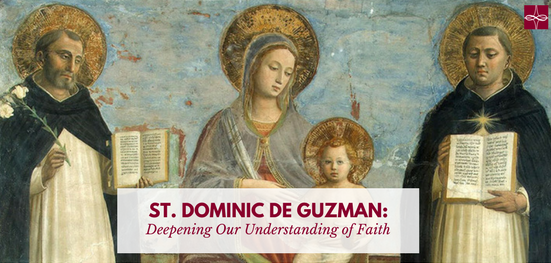

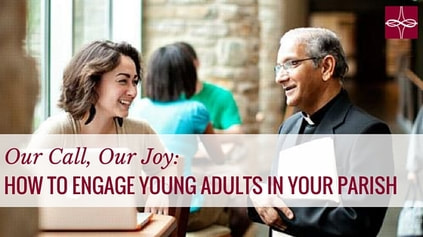
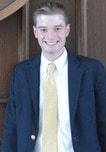
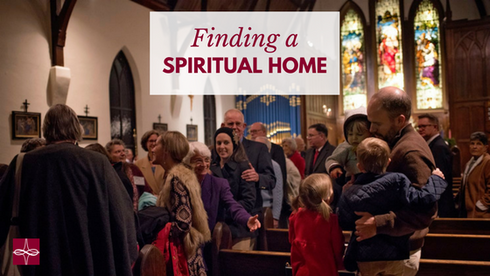

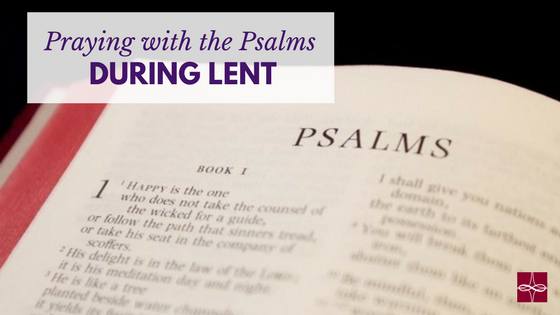

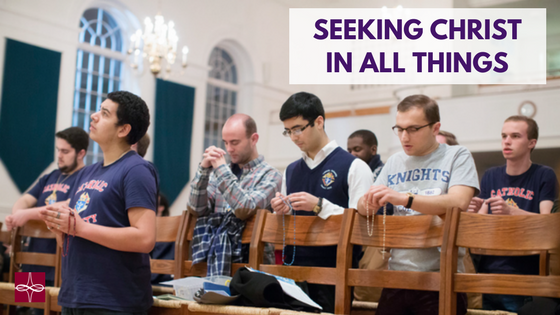
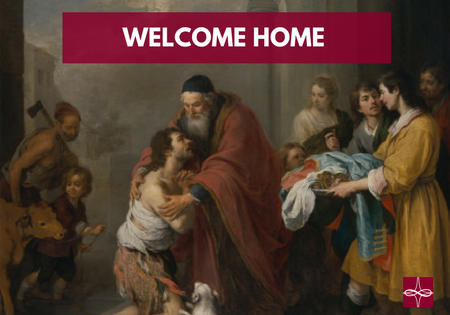

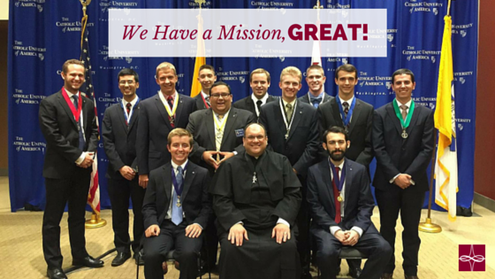
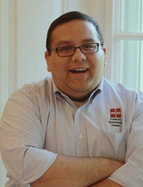
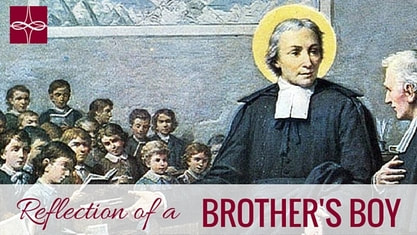

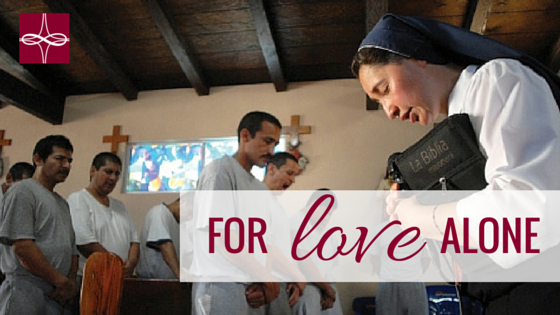
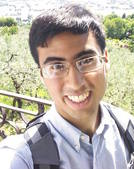
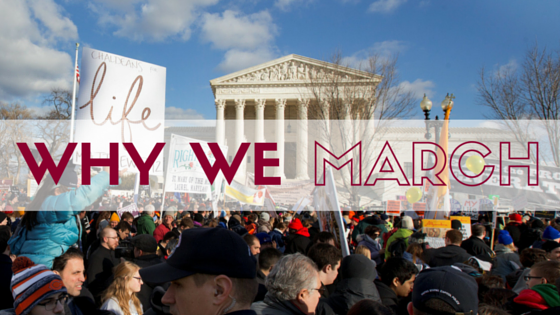

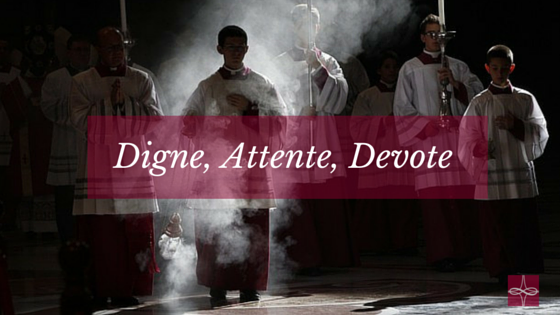

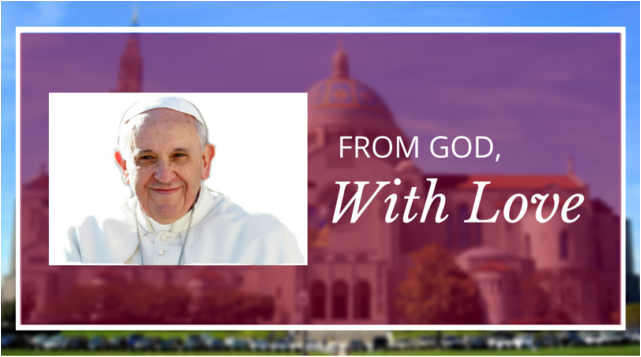

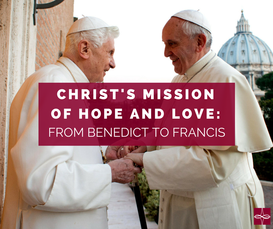

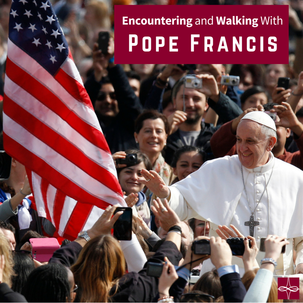

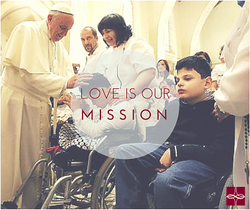

 RSS Feed
RSS Feed